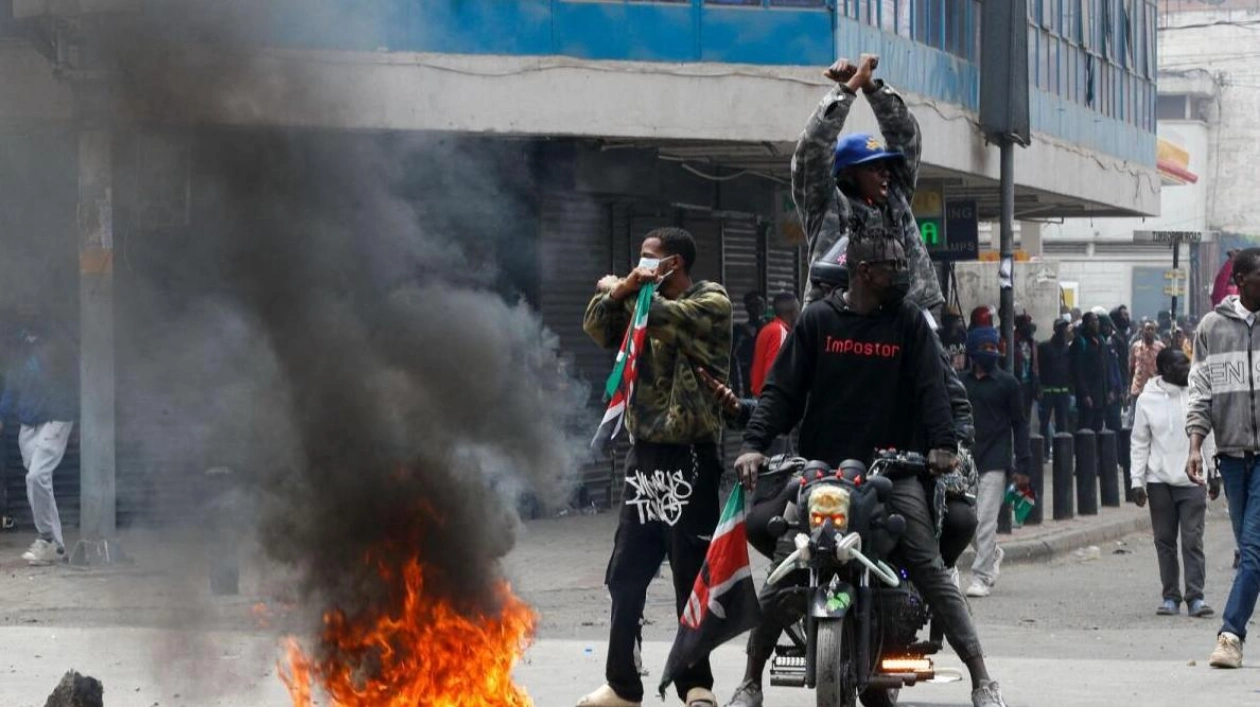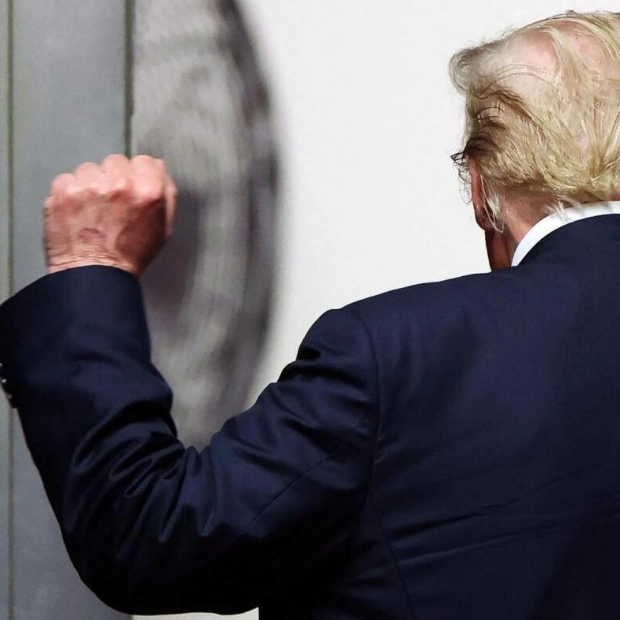Numerous Kenyans marched through the streets on Tuesday amidst a robust police presence, with numerous stores closed as youth activists called for new demonstrations following last month's anti-tax hike protests that turned violent. Despite President William Ruto's recent declaration that he would not enact a contentious finance bill that sparked what he termed 'treasonous' protests, activists have intensified their opposition. The Kenya National Commission on Human Rights (KNCHR) reported on Monday that 39 individuals had been killed and 361 injured during two weeks of protests, condemning the excessive and disproportionate use of force against demonstrators.
On Tuesday morning, Nairobi's central business district, which had been the epicenter of previous protests, was notably calm, with police on patrol and few civilians in sight. Local politician John Kwenya expressed his dissatisfaction with the closed businesses, stating to AFP that there was 'no alarm', despite incidents of looting the previous Thursday. 'They are scared. I advised people to reopen their businesses, but most are still fearful, even moving their goods out of the shops,' he said. Kwenya referred to the last protest as an act of economic sabotage, not representative of the Gen-Z population but rather 'goons'.
In other parts of Kenya, larger crowds were seen marching in Mombasa, an opposition stronghold on the coast, while smaller protests and a heavy police presence were noted in Kisumu, Nakuru, and Nyeri. Initially peaceful rallies against various tax increases, predominantly organized by Gen-Z Kenyans via social media, escalated into chaos last Tuesday when the legislation was passed by lawmakers. Following the vote, the parliament complex in central Nairobi was ransacked and partially set on fire, with police responding by firing live ammunition at protesters.
President Ruto, in a television interview on Sunday, acknowledged the loss of 19 lives but defended his decision to deploy the armed forces to quell the unrest, asserting that he did not bear responsibility for the violence. This crisis is the most severe Ruto has faced since his inauguration in September 2022, following a highly contentious election in a country often viewed as a stable entity in a volatile region. Despite Ruto's reversal on Wednesday to abandon the tax legislation, his critics remain unsatisfied. Activists have pledged to continue their protests, with social media postings calling for further action this week.
'We will not relent until William Ruto unconditionally resigns,' declared one leaflet, accompanied by the hashtag 'RutoMustGo'. It designated both Tuesday and Thursday as public holidays for an 'OccupyEverywhere' movement, urging Kenyans to participate in sit-down protests on major roads on those days. The KNCHR, on Monday, also reported 32 cases of enforced disappearances and 627 arrests of protesters, continuing to strongly condemn the violence and force used against protesters, medical personnel, lawyers, journalists, and safe spaces such as churches and medical emergency centers.
Kenya's financially strained government had previously argued that the tax increases were essential to bolster its funds and manage a substantial public debt of approximately 10 trillion shillings ($78 billion), roughly 70 percent of GDP.






